Related Research Articles
Thomas Langton was chaplain to King Edward IV, before becoming successively Bishop of St David's, Bishop of Salisbury, Bishop of Winchester, and Archbishop-elect of Canterbury.
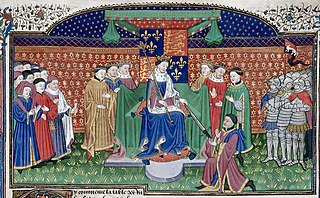
John Stafford was a medieval English prelate and statesman who served as Lord Chancellor (1432–1450) and as Archbishop of Canterbury (1443–1452).
Michael Northburgh, otherwise Michael de Northburgh (Northborough), was the Bishop of London between 1354 and his death in 1361. He was the nephew of Roger Northburgh, Bishop of Coventry and Lichfield.
John Chishull or John de Chishull was Lord Chancellor of England, Bishop of London, and Lord High Treasurer during the 13th century. He also served as Dean of St Paul's.
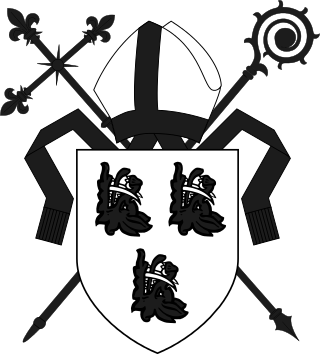
Lawrence Booth served as Prince-Bishop of Durham and Lord Chancellor of England, before being appointed Archbishop of York.
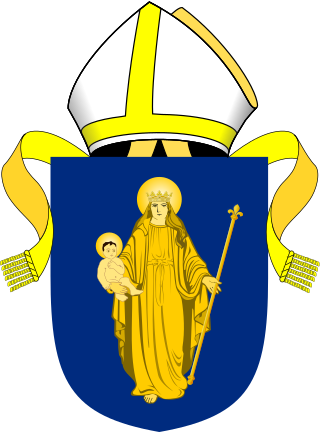
The Bishop of Salisbury is the ordinary of the Church of England's Diocese of Salisbury in the Province of Canterbury. The diocese covers much of the counties of Wiltshire and Dorset. The see is in the City of Salisbury where the bishop's seat is in the Cathedral Church of the Blessed Virgin Mary. The current bishop is Stephen Lake.
Savaric fitzGeldewin was an Englishman who became Bishop of Bath and Glastonbury in England. Related to his predecessor as well as to Emperor Henry VI, he was elected bishop on the insistence of his predecessor, who urged his election on the cathedral chapter of Bath. While bishop, Savaric spent many years attempting to annexe Glastonbury Abbey as part of his bishopric. Savaric also worked to secure the release of King Richard I of England from captivity, when the king was held by Emperor Henry VI.

Walter Skirlaw was an English bishop and diplomat. He was Bishop of Durham from 1388 to 1406. He was an important adviser to Richard II of England and Henry IV of England.

John Booth was a 15th-century English prelate who held numerous appointments in the church and royal service.
Edmund Audley was Bishop of Rochester, Bishop of Hereford and Bishop of Salisbury.
William of Bitton was a medieval English Bishop of Bath and Wells.
William of Bitton was a medieval Bishop of Bath and Wells.
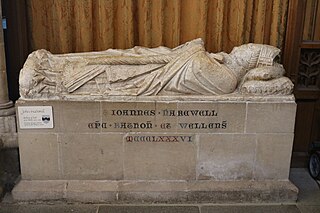
John Harewell was a Bishop of Bath and Wells in medieval England.
Simon of Wells was a medieval Bishop of Chichester.

Richard Beauchamp was a medieval Bishop of Hereford and Bishop of Salisbury.
Henry of Lexington was a medieval Bishop of Lincoln.
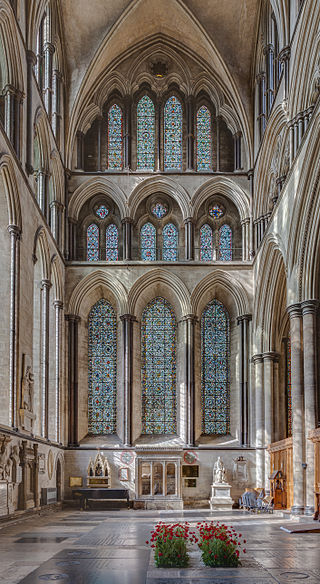
John Blyth or John Blythe was a medieval Bishop of Salisbury.
Thomas Peverel was a medieval prelate who was successively bishop of Ossory, Llandaff, and Worcester.
James Blakedon O.P., D.Th. was a medieval prelate who served as Bishop of Achonry from 1442 to 1453, then Bishop of Bangor from 1453 to 1464.
Charles Booth, D.C.L. was a sixteenth-century clergyman who served as the Bishop of Hereford from 1516 to 1535.
References
- Fryde, E. B.; Greenway, D. E.; Porter, S.; Roy, I. (1996). Handbook of British Chronology (Third revised ed.). Cambridge: Cambridge University Press. ISBN 0-521-56350-X.
